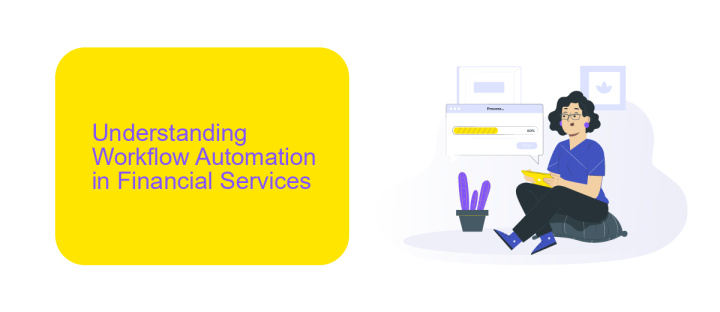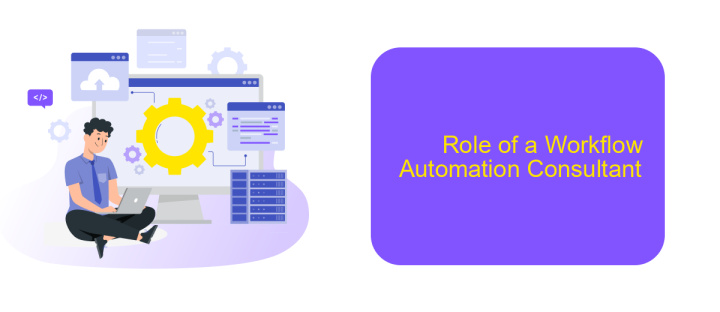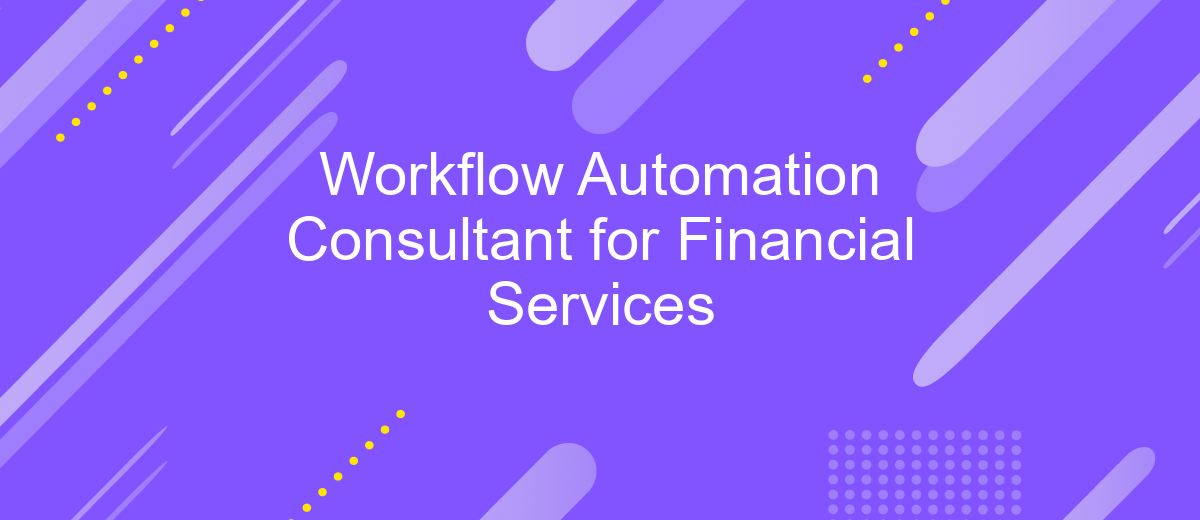Workflow Automation Consultant for Financial Services
In today's fast-paced financial landscape, efficiency and accuracy are paramount. A Workflow Automation Consultant for Financial Services plays a crucial role in streamlining operations, reducing manual errors, and enhancing productivity. By leveraging advanced automation technologies, these consultants help financial institutions optimize their processes, ensuring compliance and improving overall performance. Discover how expert guidance in workflow automation can transform your financial services operations.
Executive Summary
In the rapidly evolving financial services industry, workflow automation has become a critical component for enhancing operational efficiency and reducing costs. A Workflow Automation Consultant specializes in identifying, implementing, and optimizing automated processes to streamline financial operations and improve service delivery.
- Assessment of current workflow processes and identification of inefficiencies
- Design and implementation of customized automation solutions
- Integration of third-party services like ApiX-Drive to facilitate seamless data transfer
- Continuous monitoring and optimization of automated workflows
- Training and support for staff to adapt to new automated systems
By leveraging state-of-the-art automation tools and services, such as ApiX-Drive, a Workflow Automation Consultant can significantly enhance the agility and scalability of financial institutions. This not only ensures compliance with industry regulations but also delivers superior customer experiences, positioning the organization for long-term success.
Understanding Workflow Automation in Financial Services

Workflow automation in financial services involves the use of technology to streamline and optimize various business processes. By automating repetitive tasks, financial institutions can improve efficiency, reduce errors, and ensure compliance with regulatory requirements. Key areas where workflow automation can be applied include customer onboarding, loan processing, compliance checks, and transaction monitoring. These automated workflows not only save time but also allow employees to focus on more strategic activities, ultimately enhancing overall productivity.
One of the essential aspects of implementing workflow automation is the integration of various systems and applications. Tools like ApiX-Drive facilitate seamless integration by connecting different software solutions, enabling data to flow effortlessly across platforms. This ensures that all relevant information is accessible in real-time, allowing for more informed decision-making. By leveraging such integration services, financial institutions can create a cohesive and efficient workflow, leading to better customer experiences and more streamlined operations.
Challenges and Opportunities for Workflow Automation

Workflow automation in financial services presents a myriad of challenges and opportunities. One of the primary challenges is ensuring data security and compliance with stringent regulations. Financial institutions must navigate complex legal landscapes while maintaining the integrity and confidentiality of sensitive information.
- Integration with legacy systems: Many financial institutions still rely on outdated technology, creating barriers to seamless automation.
- Customization: Tailoring automation solutions to meet specific organizational needs can be time-consuming and costly.
- Scalability: Ensuring that automation processes can scale with growing business demands is crucial for long-term success.
Despite these challenges, there are significant opportunities for workflow automation. Tools like ApiX-Drive facilitate seamless integration between various systems, reducing manual intervention and improving efficiency. By leveraging such technologies, financial services can enhance accuracy, reduce operational costs, and deliver better customer experiences. Embracing workflow automation can position financial institutions at the forefront of innovation, driving growth and competitive advantage.
Role of a Workflow Automation Consultant

A Workflow Automation Consultant plays a crucial role in optimizing and streamlining business processes within financial services. They analyze existing workflows, identify inefficiencies, and implement automation solutions to enhance productivity and reduce operational costs. Their expertise ensures that financial institutions can adapt to changing market demands and regulatory requirements.
One of the key responsibilities of a Workflow Automation Consultant is to design and integrate automated systems that improve data accuracy and speed up transaction processing. They work closely with IT and business teams to ensure seamless integration of various software applications, often utilizing tools like ApiX-Drive to facilitate smooth data transfer and synchronization between platforms.
- Analyze and map current workflows
- Identify areas for automation and improvement
- Design and implement automation solutions
- Integrate software applications using tools like ApiX-Drive
- Train staff on new automated processes
- Monitor and optimize automated workflows
By leveraging their expertise, Workflow Automation Consultants help financial services organizations achieve greater efficiency, compliance, and customer satisfaction. Their role is indispensable in a rapidly evolving industry where precision and speed are paramount.
Conclusion
In conclusion, the role of a Workflow Automation Consultant in the financial services sector is pivotal for enhancing operational efficiency and accuracy. By leveraging advanced automation tools and platforms, such as ApiX-Drive, consultants can seamlessly integrate various systems, ensuring smooth data flow and reducing manual intervention. This not only minimizes errors but also frees up valuable time for employees to focus on more strategic tasks.
Moreover, the implementation of workflow automation leads to improved compliance and better risk management, which are critical in the highly regulated financial industry. As financial institutions continue to evolve and adapt to new technological advancements, the expertise of Workflow Automation Consultants will remain indispensable. By staying ahead of the curve and utilizing state-of-the-art solutions, these professionals can drive significant improvements in productivity and client satisfaction, ultimately contributing to the long-term success of their organizations.
FAQ
What is workflow automation in financial services?
How can workflow automation benefit my financial services business?
What types of tasks can be automated in financial services?
How do I get started with workflow automation in my financial services firm?
Is it difficult to implement workflow automation in financial services?
Time is the most valuable resource for business today. Almost half of it is wasted on routine tasks. Your employees are constantly forced to perform monotonous tasks that are difficult to classify as important and specialized. You can leave everything as it is by hiring additional employees, or you can automate most of the business processes using the ApiX-Drive online connector to get rid of unnecessary time and money expenses once and for all. The choice is yours!

